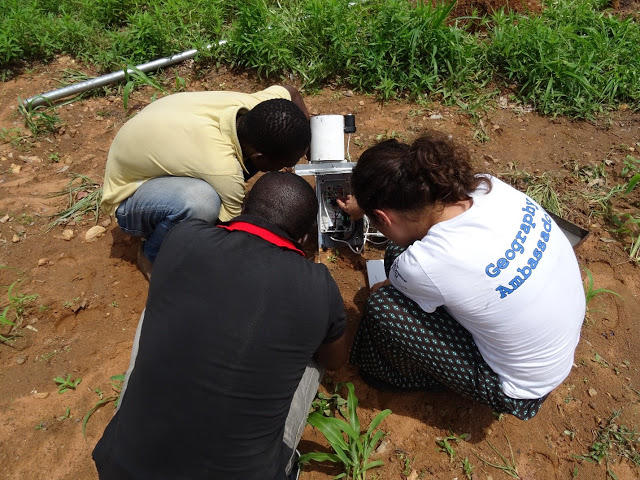Outside, whatever the weather: FreeStations in the Volta basin

As part of a CGIAR Water Land and Ecosystems project, researchers and students from King’s College London, Bioversity International, and other partner organizations are working to improve the distribution of weather stations across the Volta river basin. Earlier in 2016, the partners were busy sourcing, building and testing the first suite of a new weather station: the FreeStation.
As part of a CGIAR Water Land and Ecosystems project, researchers and students from King’s College London, Bioversity International, and other partner organizations are working to improve the distribution of weather stations across the Volta river basin. Earlier in 2016, the partners were busy sourcing, building and testing the first suite of a new weather station: the FreeStation.
Globally, numbers of ground-based weather stations are on the decline. Weather stations provide long-term information on climate that forms the basis for weather forecasting, climate projections and hydrological monitoring and modelling. Weather is increasingly monitored using data collected from other valuable sources, such as satellites and aircraft, but without field stations these remote and coarse scale datasets cannot be validated and localized climatic trends may be missed.
Since the Volta basin covers a 400,000km2 area and straddles six West African countries, effectively managing water and land in the Volta basin is very important for sustaining the water supplies on which the basin’s people and natural resources depend. Reliable climate data can facilitate this task, enabling more accurate modelling and projections of future scenarios. But a major challenge with achieving good weather station coverage, particularly in low-income areas, is that most proprietary station units are expensive, difficult to transport and technically challenging to use and maintain. This can make it financially and logistically difficult to set up and maintain stations in developing country contexts.
As part of a CGIAR Water Land and Ecosystems project on Targeting Agricultural Innovations and Ecosystem Services in the northern Volta basin, researchers and students from King’s College London, Bioversity International, SNV World, University of Ouagadougou and WASCAL are working with local schools and government institutes to improve the distribution of weather stations across the Volta river basin. Earlier this year the team were busy sourcing, building and testing the first suite of a new cheap, robust, simple and easy to maintain weather station: the FreeStation.
Bioversity International's Sarah Jones was involved with the construction of the FreeStations and led the team that installed the stations in the field. "The FreeStation automatic weather station is designed to help overcome financial and logistical challenges to setting up and maintaining weather stations, and to enable local institutes to take ownership of and support the long-term collection of weather data. For this deployment, we visited schools and ministries in Upper-East Ghana and Centre-Est of Burkina Faso in April 2016 to demonstrate how a FreeStation works and seek interest in the FreeStation initiative," she said.
Read the original blog post Outside, whatever the weather: FreeStations in the Volta basin
Photo: Preparing a FreeStation for installation with extension worker at Garango, Burkina Faso. Credit: Bioversity International/S. Jones
